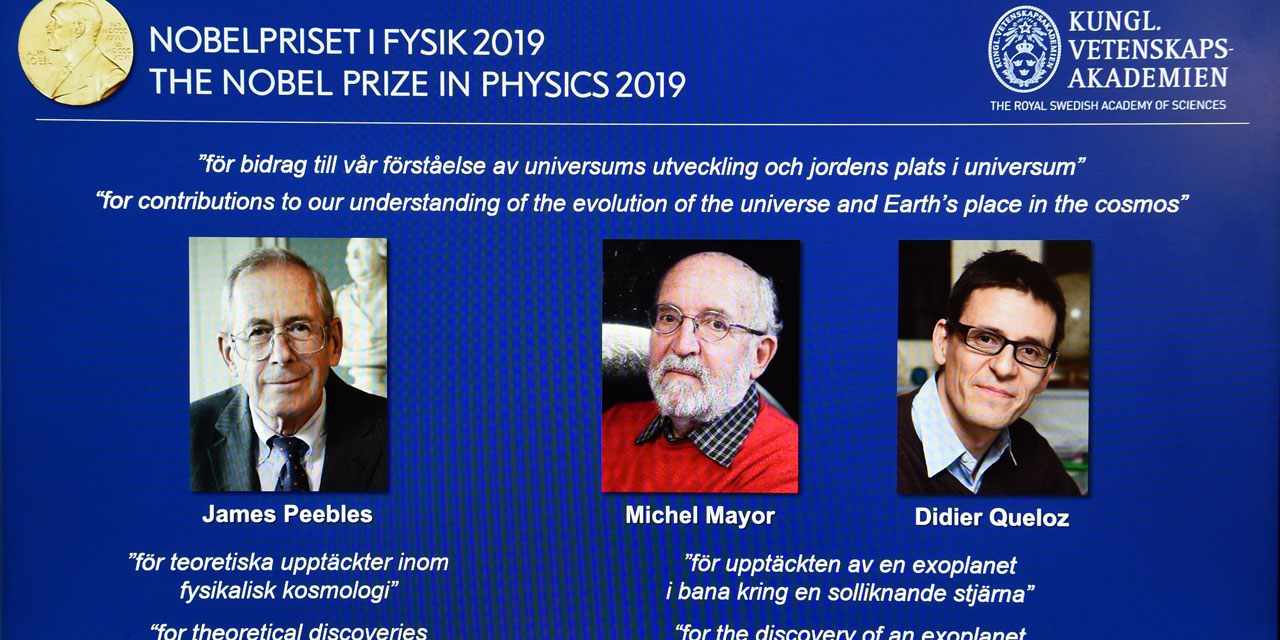The Nobel Prize in physics Tuesday distinguished three prominent cosmologists, the Canadian-American James Peebles and the Swiss Michel Mayor and Didier Queloz. The prize goes "for half to James Peebles for theoretical discoveries in physical cosmology and the other half jointly with Michel Mayor and Didier Queloz for the discovery of an exoplanet in orbit around a solar-type star", announced Göran Hansson, Secretary General of the Royal Swedish Academy of Sciences.
The three researchers, astrophysicists and astronomers, contributed to "a new understanding of the structure and history of the universe". "Their work has forever changed our conceptions of the world," the academy added. James Peebles is interested in the cosmos, with its billions of galaxies and groups of galaxies. Its theoretical framework, developed over two decades, delves into the genesis of the universe, from the Big Bang to the present day.
The prize will be awarded on December 10
Michel Mayor and Didier Queloz explored our galaxy, the Milky Way, in search of unknown worlds. In 1995, they made the first discovery of a planet outside our solar system: an exoplanet orbiting a solar-type star, 51 Pegasi b. In a statement issued by the University of Geneva, they recalled their "excitement" when they made this discovery. "To be awarded a Nobel Prize is simply amazing," they added.
They will receive their prize from the hands of Sweden's King Carl XVI Gustaf at a lavish ceremony in Stockholm on 10 December. The Nobel Prize in Physics last year rewarded a trio of researchers whose studies on lasers produced high-precision instruments used in industry and medicine. Explorers of the infinitely small and celestial confines, the American Arthur Ashkin, doyen of the Nobel laureates at 96, the French Gérard Mourou and the Canadian Donna Strickland have developed beams capable of capturing cells, repairing an eye or, eventually, to disintegrate space wastes

